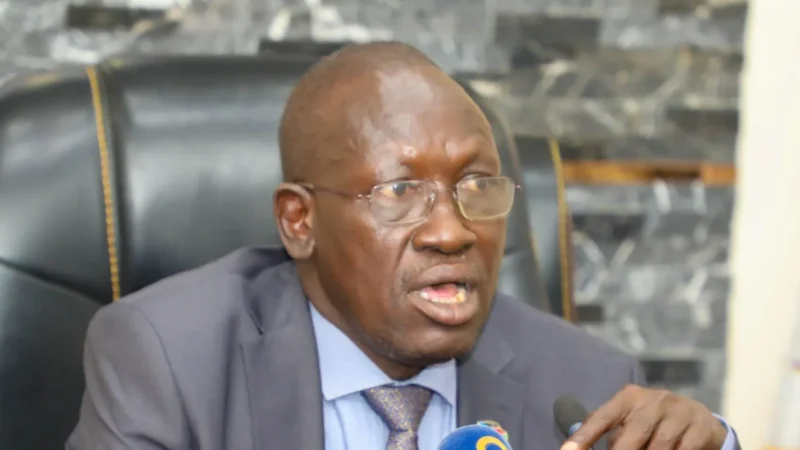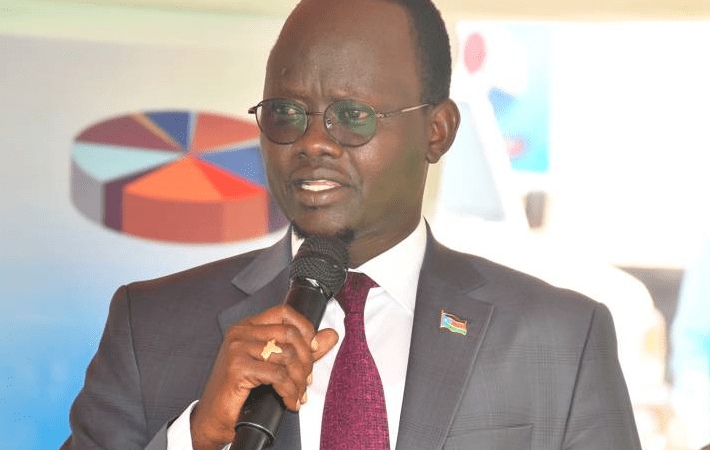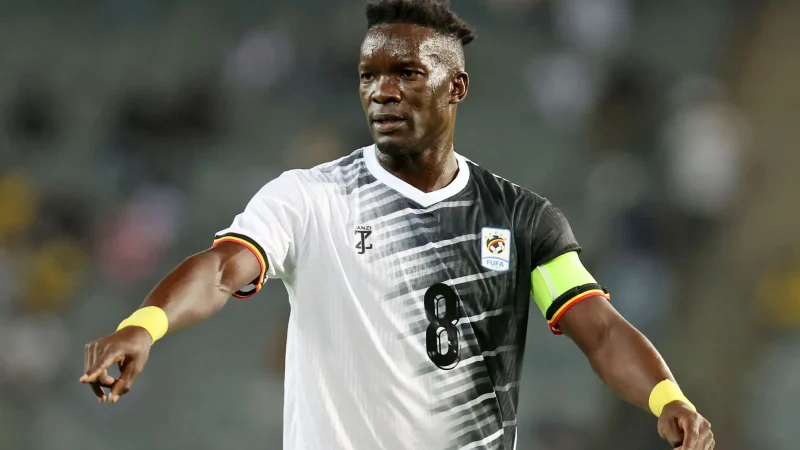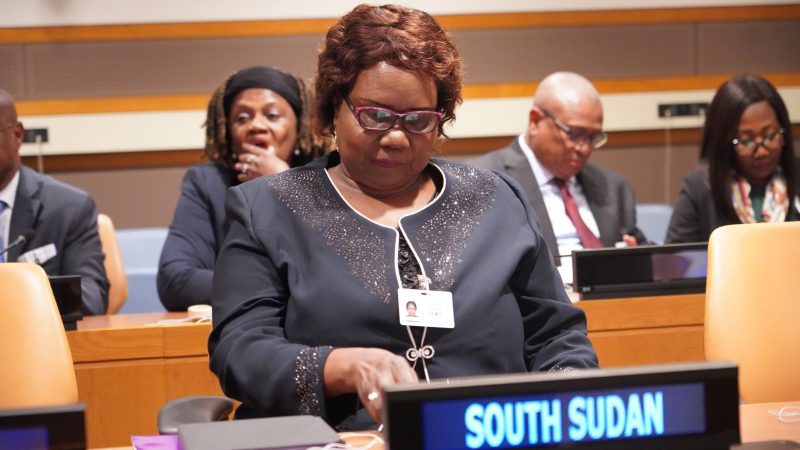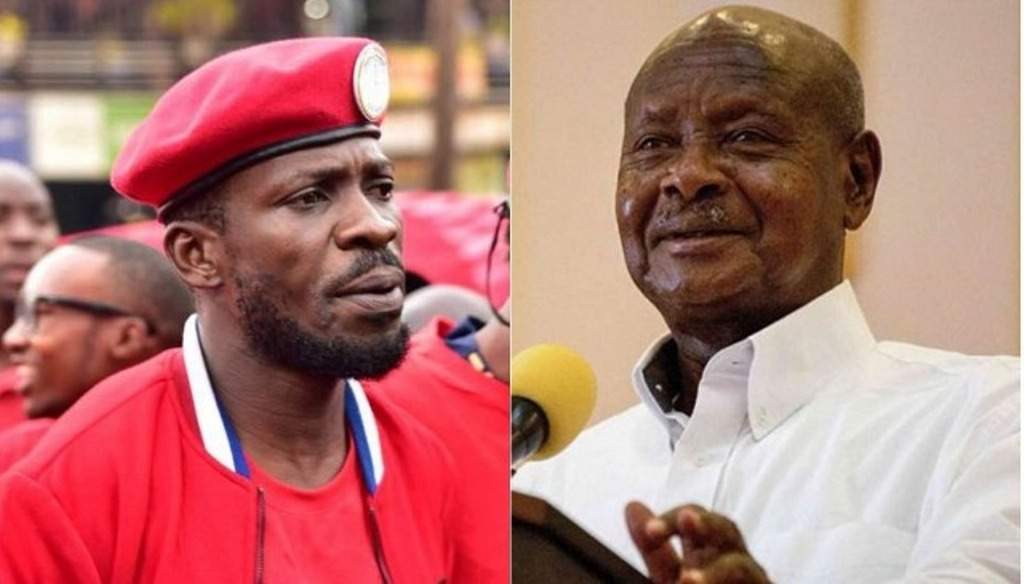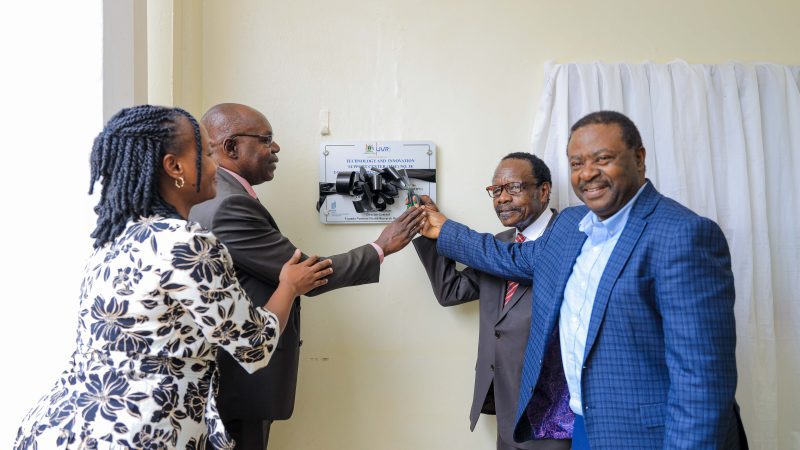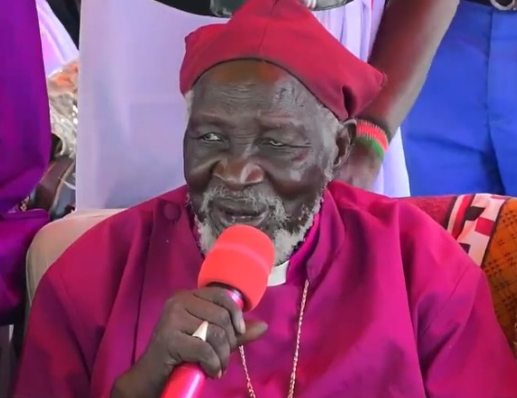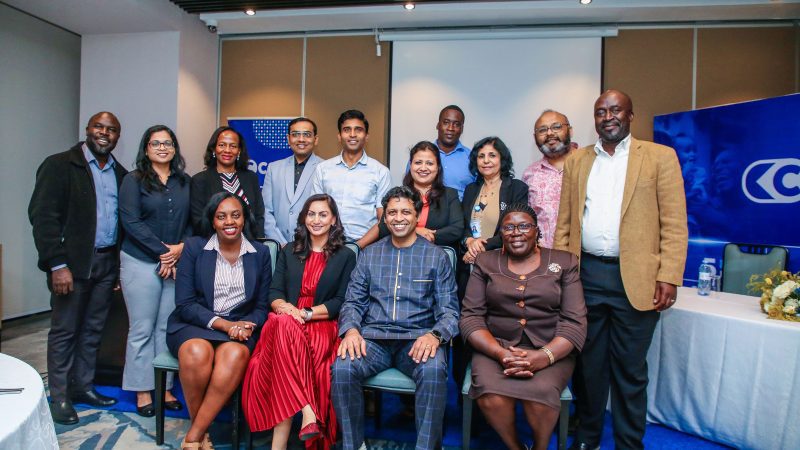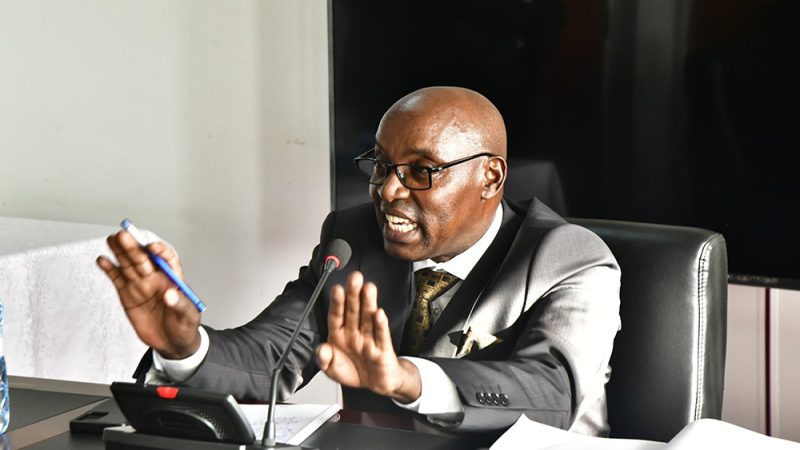President Yoweri Museveni has cleared the air on reports that he is giving youths in opposition strongholds money to make them reject politicians such as Dr Kizza Besigye and Bobi Wine.
In recent months, Museveni has extended financial help to youth groups in Rukungiri, Kampala and Wakiso districts.
Rukungiri is home to Besigye, Museveni’s fiercest critic in two decades.
The president even extended financial help to youth groups in Kamwokya, a place where singer and emerging political figure Bobi Wine (Robert Kyagulanyi, the Kyadondo East MP), grew up.
But in a lengthy statement issued at the weekend, Museveni said he was simply helping youths overcome poverty — since he was not comfortable seeing poor neighbors and doing nothing to help them.
Here is Museveni’s full statement
CLARIFICATION ON THE CONFUSION SURROUNDING THE YOUTH PROGRAMMES
Fellow Countrymen and Countrywomen, especially the NRM Leaders
I am writing to clarify the confusion surrounding the Youth Programmes that I started putting in place in the Kampala area and also in the Rukungiri area and some other places.
Especially some of the NRM supporters, they misunderstood this effort. They thought that I was rewarding the Opposition areas instead of giving support to the strong Movement areas.
Then, I understand that some of the Movement leaders wonder why I do not pass those programmes through them instead of my State House Comptroller, Nakyobe, inviting them last minute to just be among the guests.
By 1966, end of year, I had just turned 22 years of age, the previous September.
We had just finished our A-level examinations at the beginning of December. In those days, the university courses would start in July.
We would, therefore, have a whole half-a year in which we could be employed as Licensed Teachers (LTs) on account of the shortage of teachers of those days.
Even after O-level, I had taught for 2 months at Bweranyangyi Senior Secondary School that had started that very year.
Together with my comrade, Mwesigwa Black, we decided to use the remaining part of the month of December, 1966, to start addressing one of the big problems of our country that is still with us today.
This is the phenomenon of the unequal development of society by default.
In Ankole, by that time, you already had the phenomenon of a few colonial and post-colonial chiefs, politicians and a few business people engaging in commercial agriculture (e.g. dairy farming, ranching, coffee growing, tea growing, banana growing on a commercial scale, etc.), while the rest of the population continued with subsistence farming (just growing food for eating and no cash-generating activities) and yet land for agriculture was plenty, at that time.
In the case of Ankole, there was, in addition, at that time, the problem of nomadism ─ the Banyankore cattle keepers thought that the traditional way of moving from place to place was the right way ─ no schooling for the children, etc.
What was the result of all this? Poverty by default ─ people were poor when they should not have been poor. They had food but had no money. Why was this? It was simply on account of attitude.
The elite in Ankole looked down on the uneducated masses and they thought they had no capacity to go into commercial agriculture.
It was only the elite (the nnasomako) that could engage in commercial agriculture (e.g. dairy farming with exotic cattle).
The people were also resigned to their fate. They would say that those new ways of money-making were for the educated and not for them.
We were, however, convinced that through sensitization, even without formal education, the villagers could go commercial in agriculture (dairy farming, coffee-growing, etc).
I do not have space here to go into the ways we used to enter the psychology of those people in order to change their attitudes.
I, however, captured all that effort in a Booklet entitled: “From Obwiiriza (Grass Thatch) to Amatafaari (Permanent Buildings)”.In otherwords, the story of how those people moved from moneylessness to wealth at the homestead level.
Although our work was interfered with by the onset of the Idi Amin era, by 1995, the pilot effort (the example) of how you can change the attitude of the people around you to undergo social-economic metamorphosis (change) had started to succeed.
Today you have 6,000 dairy farmers in the Kiruhuura area producing 800,000 litres of milk per day and you have 4,949 coffee farmers in the Kashoongyi area alone.
These people have monthly incomes, they have built permanent houses with solar-power in their houses, water-harvesting, cars and they are sponsoring, privately, students in the universities.
Once my experiment had succeeded in the Kiruhuura area, I did two things.
First of all, in 1995, I travelled throughout the whole of Uganda talking about “Boona baggaggawale” (prosperity for all), “Kulembeka” (trapping water from the roof), “Olubiimbi” (Katara) and “Ekibaro” (proper homestead economics so as to get more income than one’s expenditure).
I was telling everybody that through commercial agriculture, many of the rural families can get out of poverty.
The NRM had brought peace and economic opportunities but each individual had to kulembeka (jolo pii, aiga akipi, etc ─ trap water) income into his own house.
Secondly, right from 1996, we introduced a Wealth Creation Fund known as “Entandikwa” (Start-up capital). This money was not for roads, water, education, etc.
It was aimed at being an interest-free finance capital scheme to help families in poverty to get out of that trap. We have given that fund different designations (names); but the essence is the same.
Take this interest-free, low-interest or, sometimes, grant money or materials and get yourself out of poverty by going commercial.
That is all we have been telling the people. These funds have been designated as: “PMA”, “Entandikwa”, “NAADS”, “Microfinance”, “OWC”, “Women Fund”, Youth Fund”, “NUSAF”, “PRDP”, etc., etc.
This is all government money put aside to help those who want to get out of poverty without borrowing from the Banks.
This money is channeled through the Local Governments. In the budget of 2018/2019, a total of Ug. Shs. 1.119 trillion has been put aside for OWC, Youth Fund, Women Fund, Micro-finance, NUSAF, PRDP, Luwero Triangle Fund, UCDA, KCCA, etc.
The problem, however, is that many of the concerned people seem not to appreciate the value of this money in terms of redeeming their people from poverty. Operation Wealth Creation (OWC) has caused some impact.
That is why both maize and coffee reached record levels. However, much more could have been achieved.
When programmes stagnate in spite of so much money being spent, the freedom-fighter and mutembuuzi(pioneer) Museveni comes in and says: “Let me show these people how it should be correctly done as I did in Kiruhuura since 1966”.
That is how I started some model parishes: Ruharo in Bushenyi and Kawumu in Luwero. In Kawumu, I have both a model parish and a four acres model garden of the President.
I also have a model farm and I am developing a model parish in Kityerera, Mayuge. In Kisozi, I have a model zone, covering 9 villages with a total of 1,700 homesteads.
In the Kabarole area, I, long ago, launched the model parish of Rwengaaju with 2,500 homesteads. Recently, I launched model farms in Arua and Barlegi in Otuke, Lango.
How and why do I choose areas for my direct interventions? The main reason I had to directly come in was on account of people, especially the leaders, taking too long to grasp the ideas of how one can change the uneducated (abataasoma) or those who studied a little (abaasomakoakatono), into money earners for their families.
I decided to do it again in a few selected areas as a demonstration to prove the viability of the concept so that the others, then, have something to, again, learn from.
The Kiruhuura model has spread to much of the cattle corridor: Lyantonde, Isingiro, Mbarara, Ssembabule, Goomba, Kyenkwaanzi, Kiboga, Nakaseke, Masindi, etc. Ibaanda is exemplary in coffee. Bundibugyo is exemplary in cocoa, coffee and Palm oil.
Kalangala is exemplary in Palm oil. Other areas are, however, still asleep (kulambaala). Hence, my renewed direct involvement.
How do I choose areas to intervene in directly? Mainly, two criteria: proximity to where I happen to reside for a length of time for some reason and some historical reasons.
I started with Kiruhuura in 1966 because I happened to be living there by that time. I did not start from Ntungamo where I was born because, by that time, I was no longer residing there.
Operationally, it was easier to tackle, first, your neighbours. There is also a moral question. Your chances of going to heaven may be compromised if you have beneficial knowledge but you do not pass it on to your neighbours.
As a matter of faith, I cannot live comfortably in the neighbourhood of poor people without doing something about them. That brings me to Kampala. I have lived on this earth for 74 years now.
Thirty two (32) of those have been in the Kampala-Entebbe area.
I, therefore, drive daily passed the furniture makers of Najjanankumbi, the food-sellers of Zana, the food-sellers of Bwebajja, etc. Once in a while, I go to Munyonyo and see the furniture makers of Nsambya or I go to Kawempe and see the furniture makers of Kubiri, Bwaise, etc.
Daily, I see the metal fabricators of Katwe on my way to Entebbe. It is, therefore, a matter of religious faith that when I have some time, I stop and ask these people what they do.
Only to find that they could do much better if they had the common user facilities of their own instead of renting from the few “bagagga” who cheat them.
Therefore, my NRM colleagues, please, understand that I help the Kampala groups under the same logic I started with the Kiruhuura residents because they were my neighbours.
If you do not start with the neighbour, whom will you help? Some of the areas like Kawumu, Kityerera and Barlegi, I focus on them for historical reasons.
We had a guerrilla camp in Kityerera in 1972/73, Kawumu was our base in 1982 and Barlegi was our base in the fight against Kony.
I helped the groups of Najjera because I came to know them by chance. I happened to stop to use my caravan. When I came out of the caravan, I saw a group of 30 youths that were engaged in metal fabrication.
After interacting with them, I could see that they could be greatly helped by having their own common-user machines ─metal-cutters, metal-benders, etc.
Therefore, whatever group I deal with directly, there is a rational reason.
The main reason, however, is to demonstrate that things can be done, that poverty can be defeated; that jobs can be created; that imported products (shoes, furniture, etc.), can be made here by our people.
Once the example is given, then the next question will be: “Where will the groups get the money from to copy the example?”
The answer is that the money going through Ministries and the Local Government each year is about Uganda shillings 1.119 trillions. This is Shs. 1,119 billions (Obuwumbi Lukumi mu kikumi mu kumi na mwenda).
The money I have used with Madam Nakyobe for my demonstration projects in the last two years, including skilling the girl child, is only 15 billion shillings.
Besides, once the examples I have shown are appreciated, all the leaders (Minsters, MPs, local government, religious leaders, cultural leaders, professionals) ought to develop consensus so that our budget of Shs. 32,000 billion is spent more on infrastructure, service delivery, wealth creation and job-creation rather than spending it on consumption, travels, salaries, new districts, etc.
Use my successful examples to get rid of poverty and create jobs.
Do not seek to paralyze me by saying that I should also not make initiatives. The complaint that I care more about opposition than NRM, is not correct. There is no Opposition in Kiruhuura, Kisozi, Kawumu, or Kityerera.
If the Opposition people in Kampala benefit in Kampala, it is because I am handling neighbours.
Therefore, the complaint of the “akaana akalizi kalya emboli enene” (the child who makes alot of noise-crying ─ eats biggest potato) does not apply in my examples (projects).
In fact, in many cases, Opposition areas, other than the big national projects, that cannot be missed, may miss out because their ego-centric leaders do not come to the fora where planning is done. I have planned for the tarmacking of Rwenkunyu-Masindi Port-Apac-Lira-Acholibur road.
Since Maruzi County is, however, in the habit of electing Opposition people, we may not know what the women groups may need beyond the wealth creation programmes.
Moreover, the opposition people are also Ugandans. They are also entitled to support from the government of the country.
That is perfectly in order. What would not be in order would be for the Opposition to be the only ones that benefit.
However, for them to also benefit is in order, especially if the ones who benefit most are the NRM supporters. It is also erroneous to say that Kampala is just opposition.
I got 240,000 votes from Kampala. Besigye got slightly more votes possibly because of cheating and they are accused of doing so in Jinja East, Bugiri, Arua, Rukungiri and even Sheema Municipality (although we did not go to court for this one).
These votes are more than the votes I got from many individual districts.
Conclusion, much more money is channeled through the Ministries and Local Governments than the little fund I have been using.
If my small projects are effective, then we may have to re-channel the big monies through the State House Comptroller.
Once the President is involved in programmes concerning money, then it must be the State House Comptroller to handle the money. It is government money.
It must be handled by a civil servant. It is wrong for the political people to be involved in Finance or Administration. Ours is policy, plans and supervision.
Finance and administration is for the civil servants. Nyineeka taza mukiyungu ─ the head of the home never goes into the kitchen.
It is now 45 years with Maama Janet, I have never stepped in the kitchen. That is how it should be.
Yoweri K. Museveni
P R E S I D E N T
Andrew Mwenda: Museveni Is More Enlightened, Informed Than Bobi Wine Can Ever Be In Next 100 Years


